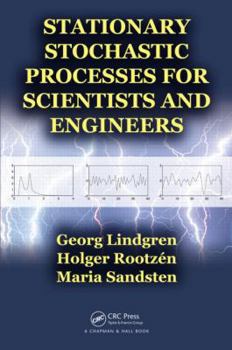Stationary Stochastic Processes for Scientists and Engineers
Stochastic processes are indispensable tools for development and research in signal and image processing, automatic control, oceanography, structural reliability, environmetrics, climatology, econometrics, and many other areas of science and engineering. Suitable for a one-semester course, Stationary Stochastic Processes for Scientists and Engineers teaches students how to use these processes efficiently. Carefully balancing mathematical rigor and ease of exposition, the book provides students with a sufficient understanding of the theory and a practical appreciation of how it is used in real-life situations. Special emphasis is on the interpretation of various statistical models and concepts as well as the types of questions statistical analysis can answer.
The text first introduces numerous examples from signal processing, economics, and general natural sciences and technology. It then covers the estimation of mean value and covariance functions, properties of stationary Poisson processes, Fourier analysis of the covariance function (spectral analysis), and the Gaussian distribution. The book also focuses on input-output relations in linear filters, describes discrete-time auto-regressive and moving average processes, and explains how to solve linear stochastic differential equations. It concludes with frequency analysis and estimation of spectral densities.
With a focus on model building and interpreting the statistical concepts, this classroom-tested book conveys a broad understanding of the mechanisms that generate stationary stochastic processes. By combining theory and applications, the text gives students a well-rounded introduction to these processes. To enable hands-on practice, MATLAB(R) code is available online.





